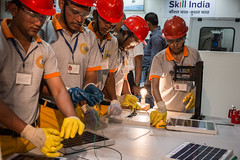The Promise of Ejo Heza : A Brighter Future for All Rwandans - Executive Summary (English)
This report is a product of a two-year engagement between the World Bank team and Rwanda Social Security Board (RSSB). It aims to overview the Ejo Heza scheme, a local term that translates to ‘a better future,’ not only holds the promise of income security at older ages but can also be a much-needed source for domestic resource mobilization in the country. The report highlight its key strengths, and provide recommendations to improve coverage, adequacy, operational efficiency, and long-run viability.




